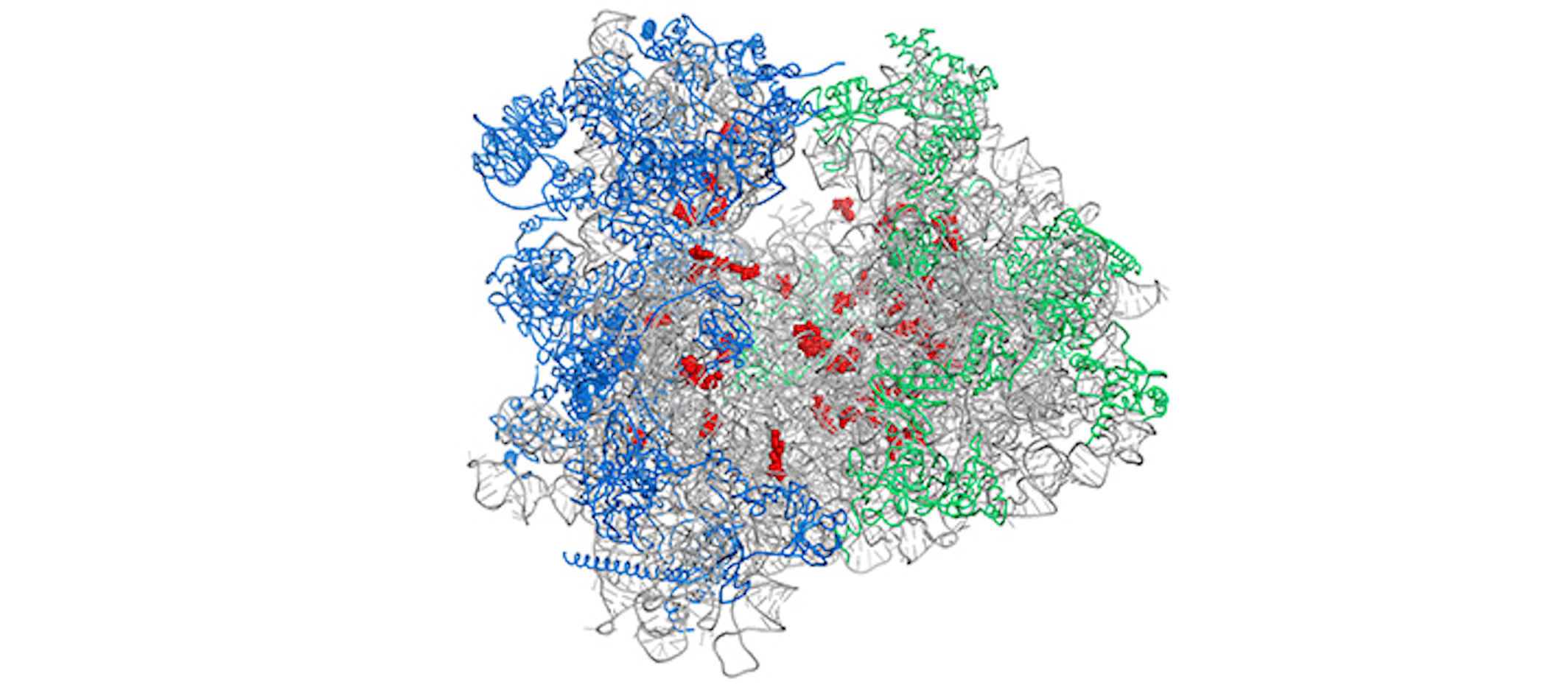Role of rRNA modifications for ribosome biogenesis and function
Ribosomal RNAs (rRNA), which account for a large portion of ribosomal mass, are processed from large transcripts by endo- and exonucleases, and are chemically modified at critical positions. rRNA chemical modifications are required for proper ribosome biogenesis and their absence affects the efficiency and fidelity of protein synthesis. In eukaryotes, the majority of rRNA modifications are added by evolutionarily conserved small nucleolar ribonucleoprotein (snoRNP) complexes containing essential proteins and snoRNAs that guide rRNA processing and modification. snoRNAs are an abundant class of small non-coding RNAs that guide the modification of more than 100 rRNA nucleotides in yeast ribosomes (>200 in human cells). Although rRNA modifications are critical for ribosome production and fidelity and efficiency of protein synthesis, why there are so many modifications remains largely unknown. A major goal of our lab is to reveal the contribution of rRNA modifications to the structure and function of the ribosome.
Mechanism of snoRNP assembly
The steady-state levels of snoRNAs, which is critical to control their activity in guiding modifications, is post-transcriptionally regulated. Evolutionarily conserved proteins, which protect snoRNAs from nuclease degradation, interact with snoRNAs to form functional snoRNP complexes. In eukaryotes, a set of critical protein factors regulate the formation of snoRNPs. This assembly machinery controls the number of active snoRNPs and coordinates the process of snoRNP biogenesis with other cellular events such as transcription and splicing. Although the main regulatory factors involved in snoRNP assembly have been identified, how they exert their functions and how their dysregulation causes cellular defects is unclear. A key area of research in our lab is focused on deciphering the mechanisms that regulate the formation of snoRNP complexes for rRNA modification, which is a crucial step towards a more comprehensive understanding of translational control in eukaryotes.
Dysregulation of snoRNAs and impaired snoRNP assembly in disease
Changes in modification pattern of rRNAs or the expression of snoRNAs cause severe functional outcomes: In yeast, deletion of individual snoRNAs affects adaptation of cells to stress and drug resistance. In zebrafish, inhibition of snoRNA expression leads to severe morphological defects. In humans, snoRNA dysregulations and changes in rRNA modification pattern are linked to several diseases including oncogenesis in breast, lung, prostate and colorectal cancers. How dysregulation of snoRNA levels or impaired snoRNP assembly can cause adverse cellular effects is largely unknown to date and constitutes a major area of research in our laboratory.


